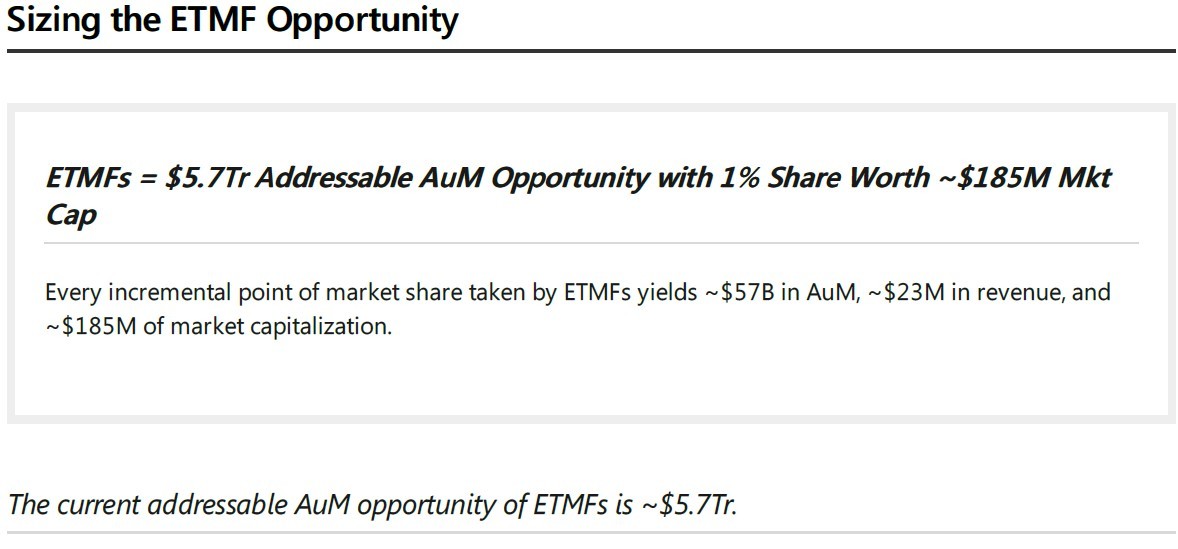EXCHANGE TRADE FUNDS A BETTER ALTERNATIVE TO MUTUAL FUNDS
Post on: 11 Апрель, 2015 No Comment

Exchange Trade Funds — A Better Alternative to Mutual Funds?
naseer131’s site:
Sponsored links:
This article will spotlight the numerous advantages of investing in ETFs or Exchange trade funds and how it can in reality bolster your investment finances. Exchange trade funds are reasonably new investment tools that work like mutual funds but can be traded much like stocks. Exchange Trade Funds, are investment units based on a certain index such as S&P 500. As an investor, you can buy or sell shares of a whole portfolio of stocks in a single trade.
These funds may be bought on margin, subject to the same terms that are applied to common stocks.
Stories similar to Exchange Trade Funds — A Better Alternative to Mutual Funds? :
Additional information on Exchange Trade Funds — A Better Alternative to Mutual Funds.
- Jan 17, 2013 . Mutual Funds. According to Investopedia the average stock fund . ETFs: In comparison, many exchange -traded funds are less costly than mutual funds. are . mutual funds have expanded into different and alternative markets .
- . a commodity or a basket of assets like an index fund. but trades like a stock on an exchange. . Is Relying On Home Equity For Retirement A Good Idea? . ETFs are a viable alternative to mutual funds. but before you invest, there are a few .
- Exchange traded funds. or ETFs, can be a better choice for some new investors . Consider Exchange Traded Funds for Alternative to Stocks or Mutual Funds .
- An exchange -traded fund (ETF) is an investment fund traded on stock exchanges. much like stocks. . An ETF combines the valuation feature of a mutual fund or unit investment trust, which . He concedes that a broadly diversified ETF that is held over time can be a good investment. . Bond ETFs: A Viable Alternative .
- Exchange -traded funds. A better alternative to mutual funds. Last Updated October 26, 2006. CBC News. A decade ago, exchange -traded funds (ETFs) were .
- Exchange -traded funds (ETFs) were once described as the new kids on the . Both ETFs and mutual funds are viable choices for investors. . As products are rolled out, investors tend to benefit from increased choices and better variations of product and price competition among providers. . Affordable ETF Alternatives .
- Exchange -traded funds. commonly called ETFs, are index funds (mutual funds that . Costs: Many good ETFs have very low fees, compared with traditional mutual funds. . required by some mutual funds. you can use ETFs as an alternative .
- Traditional open-end mutual funds have long been the staple of many . Over the past decade, however, an alternative has emerged—exchange -traded funds .
Related links about Exchange Trade Funds — A Better Alternative to Mutual Funds.
1. ETFs vs. Mutual Funds. Which is Better. — The Smarter Investor .
2. Exchange -Traded Fund (ETF) Definition | Investopedia
3. Mutual Fund Or ETF: Which Is Right For You?
4. Exchange -traded funds — CBC
5. Exchange -traded fund — Wikipedia, the free encyclopedia
Known as ETFs, Exchange Traded Funds can be bought and sold on a stock market. ETFs are an investment much like stocks and shares. The first ETFs were produced to track leading stock market indices such as the NASDAQ 100 but nowadays more and more ETFs are being created. These are allowing small investors to become small scale Hedge Fund Managers as ETFs give the small investor instant access to sectors, regions, countries, futures, short selling, currency and commodity trading and international stock markets which they were excluded from in the past. READ MORE
Firstrade is an online brokerage that offers flat fee commissions for both stocks and options. Investors and traders can trade stocks and options for only $6.95 per trade with unlimited shares, though there is some exceptions.
Products: Stocks, options, mutual funds, bonds, CDs, ETFs
Market Orders: $6.95 / trade
Limit Orders: $6.95 / trade
ETF: $6.95 / trade
Broker Assisted: $26.95 / trade
Mutual Funds: $9.95 for no-load funds. Free for NTF funds & Load funds
Options: $6.95/trade+$0.75/contract
Treasury Bills, Notes & Bonds: Net Yield Basis
Muni Bonds: Net Yield Basis
A closed end fund (CEF) is a publicly traded investment vehicle that invests in a variety of securities, such as stocks or equities and bonds or fixed income. Hence It is publicly traded, closed end funds (CEFs) is very similar to Exchange Traded Funds (ETFs). It traded like an ETF or stock, investor and trader can purchase this CEF through national stock exchange either NYSE or AMEX or Nasdaq. But unlike ETF, the amount of shares is fixed after initial public offering (IPO).
ETF or Exchange Traded Fund investment has become popular among long term investors and traders due to its liquidity. Long term investor can invest in sector ETFs to avoid sudden price movement due to stocks volatility. It provides a method for investor to diversify its investment portfolio with a small fraction of cost. In my previous article, I have provided various article about top 10 ETF, how to invest in ETF, and more. In this Article, I’ll provide Top 10 best Bond Exchange Traded Funds list.
Index Funds 3 years 16 weeks ago
Look for growth and income funds that have a consistent yield through good and bad years in the markets. Even the best performing funds can have a bad quarter so make sure to look at a few years before making a decision on what fund to buy. The Dow Jones Industrial Average and the S & P 500 are good benchmarks to compare your index fund with. The Russell 2000 is a benchmark for small cap funds.














